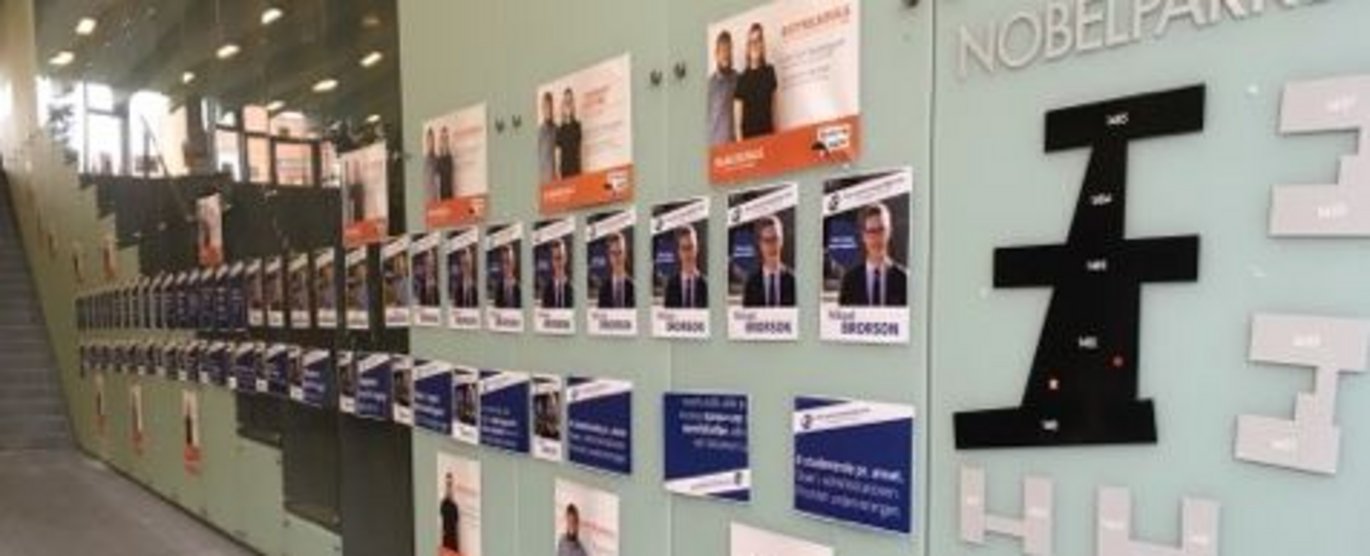Election time at AU – what’s it all about?
You’ve probably noticed that something has happened at AU after the autumn holidays: Most of the corridors and cafeterias have been decorated – or simply plastered with – small posters in shades of green, orange and blue. Though it’s easy to assume that the municipal elections have begun early at AU, this is not the case. Rather, it’s the candidates standing for election at AU you’re seeing on the posters. But what is the election about?

November is all about elections – and about staying focused. Not only does Aarhus Municipality dish up with three weeks of intense election campaigning for seats on the city council – there are also elections at AU. In other words, there’s going to be more than enough posters, candidates and politics to catch up with. To help, here comes a guide to the elections at AU.
What are we voting on?
At the AU election, students elect the two student representatives to sit on AU’s board. In addition, the students elect representatives to the academic council at their faculty and to the board of studies at their department. The PhD students will also elect representatives to the PhD committee.
How can you vote?
Forget all about voting booths, pencils and long ballot papers – you’ll only meet them at the municipal elections. At AU, elections take place electronically. You can vote from Monday 13 November until Thursday 16 November at au.dk/valg.
Well – what are we voting for?
Boards, faculties, departments – AU's organisation can be difficult to understand. So, we’ve made this diagram showing the various bodies where you have a vote and which level they are on in the organisation. Below you can read a description of the tasks that the different bodies undertake.

Graphics: Astrid Reitzel.
The board
The board is Aarhus University’s highest governing body. It safeguards the university’s interests as an institution of research and education. Two of the eleven members are students. These are the two representatives that will be elected.
The academic council
All departments have a board of studies (Science and Technology has 16 departments but only three boards of study). The board of studies works in areas such as proposals for academic regulations for individual degree programmes, and the board ensures follow up of course evaluations. The board of studies also considers applications for dispensation from exams, advance approval of courses, studying abroad and much more.
The board of studies
All departments have a board of studies (Science and Technology has 16 departments but only three boards of study). The board of studies works in areas such as proposals for academic regulations for individual degree programmes, and the board ensures follow up of course evaluations. The board of studies also considers applications for dispensation from exams, advance approval of courses, studying abroad and much more.
The PhD committee
The PhD committee works in areas such as the PhD courses on offer and the evaluation of the supervision that the individual PhD student receives from his/her supervisor.
Translated by Peter Lambourne

